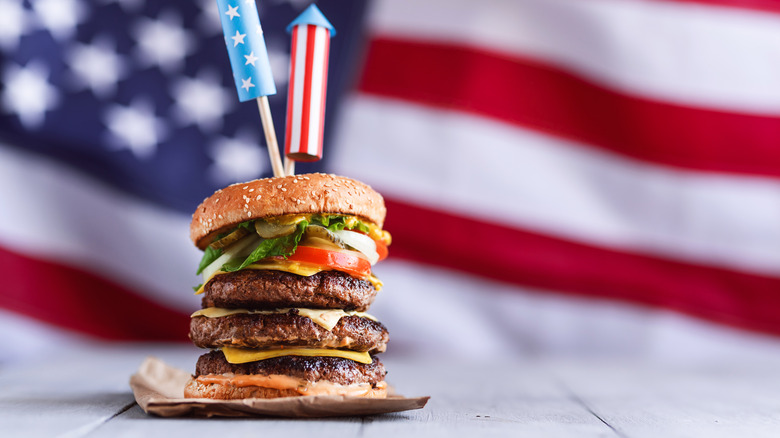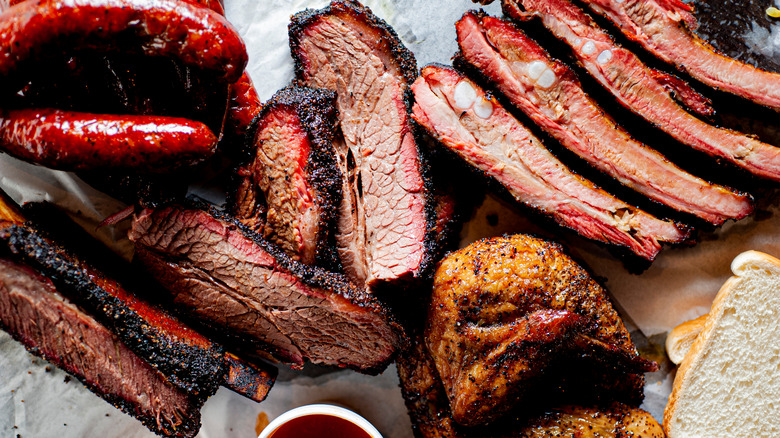Why Barbecue Is A Fourth Of July Tradition
July Fourth is one of the most recognizable national holidays in the United States. It's the day we Americans celebrate the signing of the Declaration of Independence, marking our official split from the British government. There are several major aspects to this holiday that make it memorable: the flag colors everywhere, the fireworks that light across the country, sounds of patriotic music, and of course, all the barbecue parties you get invited to.
Many of the 4th of July traditions make sense. Hanging up flags is a way of showing pride in one's country. Fireworks actually were part of the first Independence Day celebration, with John Adams noting that it should be an event with lots of "pomp, parade" types of celebrations. Getting a day off of work is also the norm since this is a federal holiday.
But barbecues? Why is this holiday synonymous with breaking out grill-ready recipes and backyard fun? Is it a matter of barbecuing just being an easy way to cook meals in the summer, or is it something a little bit more nuanced? The answer might surprise you.
Barbecues are as American as Independence Day
As it turns out, barbecue has been a major part of American culture since the 1600s, according to Fortune. This style of food preparation was brought over by multiple cultures, including West Indians, Native Americans, and enslaved African Americans. It's easy to imagine that the fusion of flavors, an open flame in the fresh air, and the way that many people can join in the cookery made it broadly appealing.
By the 1700s and 1800s, barbecue was a mainstay of American celebration. Politicians would often create citywide barbecues as a way to grandstand and garner favor with the public. These massive celebrations were held in public parks, often involved hired (or slave) help, and would feature meats donated by local farmers to fuel the food. Washington Post columnist and journalism professor Jim Shahin said that President James Madison enjoyed barbecues at his Virginia plantation, and Abraham Lincoln's parents celebrated their marriage with a BBQ feast.
By the time the 1900s arrived, it became clear that barbecue was the go-to way to celebrate almost anything political or community-oriented in the United States. But they tended to be smaller neighborhood gatherings, rather than citywide feasts. That's why July 4th became the most popular barbecue day in the nation.

